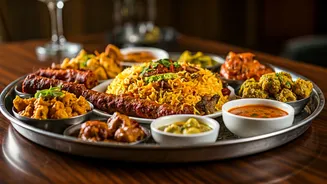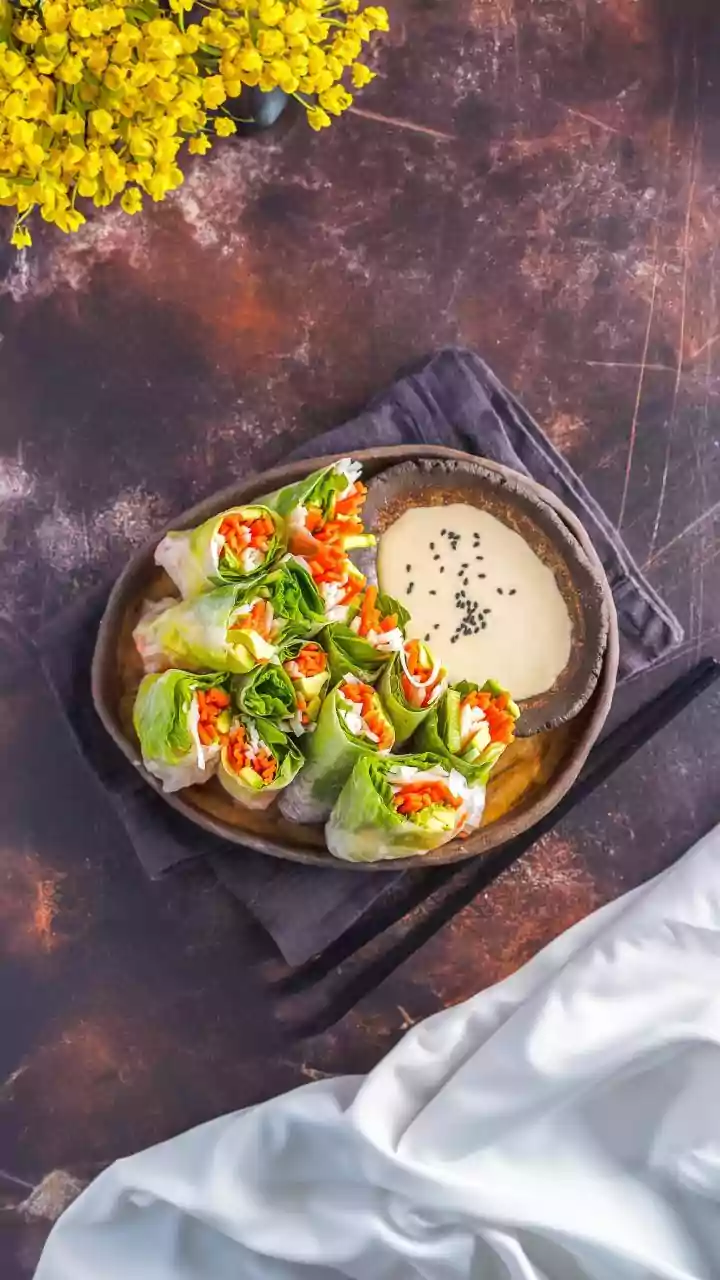Simmering Culinary History
The narrative of Awadhi cuisine is deeply intertwined with the royal heritage of Lucknow. The culinary traditions were carefully preserved within the royal kitchens,
where skilled chefs, known as 'bawarchis' and 'rakabdars', perfected the art of slow-cooking, using techniques such as 'dum' pukht, or 'breath cooking', to create dishes bursting with flavor. The legacy of Awadhi cuisine reflects a fusion of Persian, Turkish, and Mughal influences, resulting in a unique gastronomic experience. Lucknow, with its Nawabi culture, was a hub of refined living and culinary innovation. This history underscores the significance of Awadhi food, which symbolizes not just sustenance but also the cultural identity of Lucknow, telling a story of rich heritage and the evolution of taste, passed down through generations. This cuisine represents a legacy where history has been carefully preserved.
Reviving Recipes, Reclaiming Pride
The journey of Awadhi cuisine to international recognition involved a dedicated effort to revive and preserve traditional recipes. Chefs and culinary experts played a pivotal role in ensuring that these time-honored dishes continued to thrive. They sought out and perfected recipes that had been passed down through generations, ensuring the authenticity of the cuisine. This revival not only preserved culinary techniques but also instilled a sense of pride within the local community. The recognition by UNESCO as a City of Gastronomy has further enhanced this sentiment, elevating the profile of Awadhi cuisine on a global scale. The efforts showcase how heritage can be celebrated and shared with the world, encouraging culinary tourism and preserving a sense of cultural identity.
Beyond Kebabs, Kormas
While kebabs and kormas are iconic staples of Awadhi cuisine, the food represents much more. The richness of the food extends to various other preparations, including biryanis, qormas, nahari-kulchas, and an extensive array of desserts. Awadhi cuisine is known for its delicate use of spices, slow cooking techniques, and the use of ingredients that enhance the flavors. These dishes reflect the culinary expertise honed over centuries. The cuisine goes beyond individual dishes, representing an integrated experience of flavors, aromas, and textures. The legacy of Awadhi cuisine is the meticulous attention to detail in every aspect of food preparation. This includes the selection of ingredients, and the methods of cooking. This approach ensures that each dish tells a story of culinary mastery and cultural significance, offering a diverse and enriching culinary experience.
Flavour Forward Journey
The inclusion of Lucknow's Awadhi cuisine in UNESCO's City of Gastronomy is a significant milestone, acknowledging its contribution to global culinary heritage. This recognition provides opportunities for showcasing and promoting the cuisine to a worldwide audience, encouraging culinary tourism. The achievement celebrates the passion of chefs, food artisans, and the local community that have worked to preserve this culinary tradition. This recognition enhances the city's reputation. It has already created new avenues for cultural exchange and culinary innovation, inviting chefs from around the world to learn and appreciate Awadhi cuisine's complexity. The future of Awadhi cuisine is bright, and it sets the stage for continuous growth and the preservation of its legacy for future generations.




















